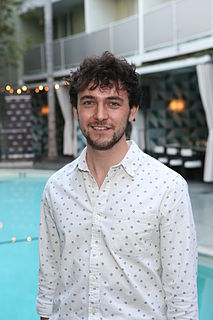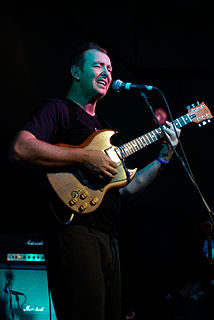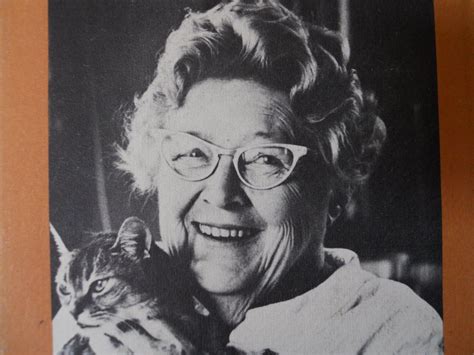A Quote by T. S. Eliot
As a rule, with me an unfinished [idea] is a thing that might as well be rubbed out. It's better, if there's something good in it that I might make use of elsewhere, to leave it at the back of my mind than on paper in a drawer. If I leave it in a drawer it remains the same thing but if it's in the memory it becomes transformed into something else.
Related Quotes
Memory is strange. Scientifically, it is not a mechanical means of repeating something. I can think a thousand times about when I broke my leg at the age of ten, but it is never the same thing which comes to mind when I think about it. My memory of this event has never been, in reality, anything except the memory of my last memory of that event. This is why I use the image of a palimpsest - something written over something partially erased - that is what memory is for me. It's not a film you play back in exactly the same way. It's like theater, with characters who appear from time to time.
This may be a little bit of a provocative thing to say, but the memoirist doesn't owe the reader anything other than a good story and the inclining of the mind in the direction of memory. Of course, the memoirist is not allowed to make things up. But the really skilled memoirist knows what to leave in and what to leave out to serve the story. In autobiography you can't do that.
Memory is a funny thing. It tricks you into believing that you've forgotten important moments, and then when you're raking your brain for a bit of information that might make sense of something else, it taps you on the head and says, "Remember when you told me to put that memory in the green rubbish bin? Well, I didn't, I put it in the black recycling tub, and it's coming your way again.
I have a few things that I have written over the years that haven't been made, but I sort of feel like there was a good reason why they were not made. So I am not anxious to go back and fix them. I don't have something in the desk drawer that I think, "The time is right now. If I just do this, it'll be great." It is kind of out of sight and out of mind. I am thinking ahead rather than back.
They have a good ethos at Guildhall in that they basically throw loads of different things at you. Their theory is that after you leave, if you use 10 of those 100 things, that's great. The other 90, you might not agree with or might not work for you as an actor. But if you can find 10 that work for you, then ultimately you leave as a better actor.
You figure out how to create opportunities to make music, and then, if you take care of the music, audiences will come around. They also might leave. What matters is the moment: the moment of making music, with and for and among others, and what that offers to those people in that moment. They might never see me again; they might never learn my name. But it might still be something they carry with them.
If you're a poet, you do something beautiful. I mean, you're supposed to leave something beautiful after you get off the page and everything. The ones you're talking about don't leave a single, solitary thing beautiful. All that maybe the slightly better ones do is sort of get inside your head and leave something there, but just because they do, just because they know how to leave something, it doesn't have to be a poem for heaven's sake. It may just be some kind of terribly fascinating, syntaxy droppings--excuse the expression. Like Manlius and Esposito and all those poor men.
Every person passing through this life will unknowingly leave something and take something away. Most of this “something” cannot be seen or heard or numbered or scientifically detected or counted. It’s what we leave in the minds of other people and what they leave in ours. Memory. The census doesn’t count it. Nothing counts without it.
I think when you leave a band in any situation that you are a part of.. I mean, when I was with It Bites I was a quarter of something, and when I was with Robert Plant I was a sixth of some- thing and when you leave you become the whole thing. So just after you spend time realizing what you are, and it just happened that I was doing that in my life as well as musically, it kind of happened at the same time. I was getting to a point in my life where I was beginning to realize who I am, and I like me.
I did once leave one of [my kid] watching something on YouTube, something completely innocuous, and I went out of the room and the algorithm kept playing the next thing and the next thing and somehow worked its way around to showing him the trailer for John Carpenter's The Thing - at which point I walked back in. He wasn't happy.
Jesus offered a single incentive to follow himto summarize his selling point: 'Follow me, and you might be happy-or you might not. Follow me, and you might be empowered-or you might not. Follow me, and you might have more friends-or you might not. Follow me, and you might have the answers-or you might not. Follow me, and you might be better off-or you might not. If you follow me, you may be worse off in every way you use to measure life. Follow me nevertheless. Because I have an offer that is worth giving up everything you have: you will learn to love well.'
Writing is the basis of all, because creating something that didn't even exist before is like taking an empty canvass. It is a wonderful thing to make something out of nothing. You've got an empty page, you've got an idea, and then you start typing and that is the most thrilling thing of all. And then if it becomes a movie or something else that's a plus, but the original writing of it is what's very exciting.







































